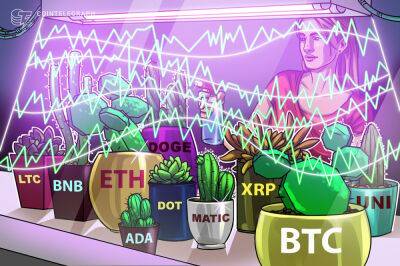IMF calls for tighter crypto regulation in Africa as the industry unfolds
The International Monetary Fund (IMF) is calling for increased regulation of Africa's crypto markets, one of the fastest-growing markets in the world, the global institution blog reported on Nov. 22.
Among the reasons why countries in the region should embrace regulation, the monetary fund cited the collapse of FTX and its ripple effect in cryptocurrencies prices, which is "prompting renewed calls for greater consumer protection and regulation of the crypto industry."
Moreover, the authors argue that "risks from crypto assets are evident" and "it’s time to regulate" to find a balance between minimizing risk and maximizing innovation. Based on the October 2022 Regional Economic Outlook for sub-Saharan Africa, the piece states that "risks are much greater if crypto is adopted as legal tender", posing a threat to public finances if governments accept crypto as means of payment.
The publication also noted:
According to IMF's data, 25% of countries in sub-Saharan Africa have formally regulated crypto, while two-thirds have implemented some restrictions. On the other hand, Cameroon, Ethiopia, Lesotho, Sierra Leone, Tanzania and the Republic of Congo have already banned crypto assets, which represents 20% of the sub-Saharan African countries. Kenya, Nigeria, and South Africa have the highest number of users in the region.
Between July 2020 and June 2021, Africa’s crypto market increased in value by more than 1,200%, according to data from analytics firm Chainalysis, with high adoption in Kenya, South Africa, Nigeria and Tanzania.
As reported by Cointelegraph, Ghana is testing for a central bank digital currency (CBDC). According to Kwame Oppong, an executive at the Bank of Ghana, the country's initiative aims to foster financial
Read more on cointelegraph.com



















